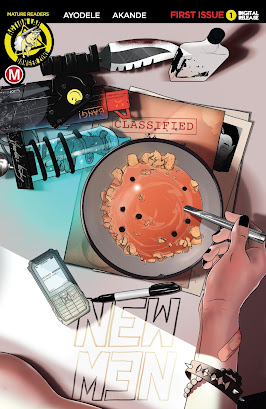I'm super excited to have Eugen Bacon stop by my blog for a quick chat. Some of you may have heard that her novel Inside the Dreaming is releasing soon. So, here goes!
You have a Tweet length to tell the world about your writing (280 characters) – and go!
Curious, playful, provocative, poetic, cross-genre, cross-cultural. Text shapes my silence. It shouts my chaos. I feel safe when interrogating complex and unsettling themes. My approach to the compositional space is with a sense of urgency where writing is an active speaking from a place of knowing, or unknowing.
If you think about what has led you to becoming a writer, what are some of the key milestones that stand out?
A love for text from an early age—how and why stories: why the zebra… / how the crocodile… / when the hyena… / what the monkey…
My father, the values he instilled in me, and a wonder about things beyond comprehension.
A deep fondness for musicality in text, hence my attraction to Toni Morrison.
Doing a PhD in writing and discovering literary theorist Roland Barthes, who found pleasure in the text; uncovering features of the ‘rhizome’ that philosopher Gilles Deleuze and his collaboration with psychoanalyst Felix Guattari produced in A Thousand Plateaus (1987), where the rhizome ‘has no beginning or end; it is always in the middle, between things, interbeing, intermezzo’. I see rhizomes every which way in my text: deviation, plateaus, interconnection. A distortion that is whole.
Which cultural objects have resulted in massive ‘aha’ moments for you?
Drums. Folklore. Spirits. Masks. A close affinity with water, nature, language, rhythm.
When I write, I read text out loud—how it sounds, what is sees, the shape of its flow is important. It’s like a ditty in my head, I just know when it feels right.
In your own work, do you ever indulge in intertextuality?
Yes. There’s a deep connection between texts, hence my crossing genre and writing across forms. Mine is a betwixt kind of writing. Perhaps that’s why I’ve taken naturally to prose poetry—literary vignettes on the everyday, the cousin of a poem and flash fiction, words and imagery enmeshed in art and metaphor.
I learnt balance from Barthes, for whom text is a multi-dimensional space where things are made and unmade, where language is infinite, and literature deepens or extends language.
Do you hope your writing sparks change in your readers, and if so, what would you like to see?
I like to think of the author as an agent of change—if not for the world, for themselves. I borrowed an understanding of the power of literature from existentialists like Simone de Beauvoir, who understood how a story and its characters interact with each other—how they are a bridge to inside out: an author or reader’s self-understanding and experience of the world they live in, or are creating.
Inside the Dreaming is releasing via NewCon Press in December. You have no more than a 100 words to tell someone who's never heard of you or your book before what it's all about and why they should read it.
There are multiple points of intersection in blackness. Inside the Dreaming is an African Australian story, black speculative fiction that’s a murder mystery and an origins tale. Ivory Tembo, the detective assigned to the case, has secrets of her own that make her uniquely qualified to face a killer that’s far more than human. And it’s linked to the death of a man with twin souls, wrath of the gods, a new habitat. This origins story is about finding who you are. It’s a fiction that’s literary and cultural. A speculative tale that is a mystery and a history.
Bio:
Eugen Bacon is African Australian, a computer scientist mentally re-engineered into creative writing. Her work has won, been shortlisted, longlisted or commended in national and international awards, including the Bridport Prize, Copyright Agency Prize, Ron Hubbard's Writers of the Future Award, Australian Shadows Awards, Ditmar Awards and Nommo Award for Speculative Fiction by Africans. Her creative work has appeared in literary and speculative fiction publications worldwide, and 2020 sees the release of two prose poetry chapbooks, three collections and a novella—Inside the Dreaming by NewCon Press, UK.







